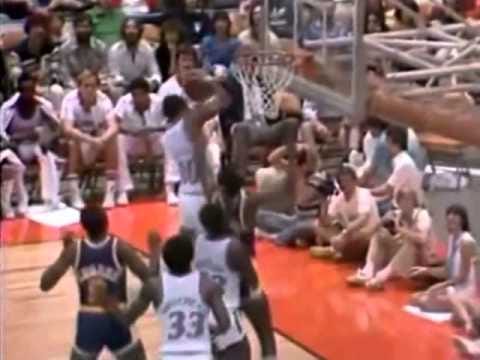The Revolutionary Offensive Game of Freeman Williams Jr.
The city of Portland hosted sports revolutionaries throughout the 1970s:
Baseball’s independent Mavericks, something of a precursor to the Savannah Bananas, professional home of Kurt Russell before his break in Hollywood, and showcased in the Netflix documentary The Battered Bastards of Baseball.
Basketball’s Portland Trail Blazers, winners of the franchise’s lone NBA championship behind a long-haired and bearded Bill Walton.
Football’s Mouse Davis, who modernized passing offense more than 30 years before the air raid because the norm in the college game.
Also plying his trade in the Rose City during that era was Portland State guard Freeman Williams Jr.
Now, I admittedly had only surface-level knowledge of Williams prior to his death today, April 20, at age 65. I have been working for some time on the short, disastrous history of pro basketball in San Diego, of which Williams played a small part as a member of the Clippers.
Williams led the ‘80-’81 Clippers in scoring at a little more than 19 points per game, but his legacy in the organization’s San Diego tenure is less noteworthy than those of World B. Free, Bill Walton (albeit for unfortunate reasons) or Norm Nixon. He peaked as a pro in his time with the Clippers, spending time in the CBA between abbreviated stretches with the Jazz and Bullets.
Even in the pantheon of basketball players named Williams, from what are today considered mid-major programs, playing in the mid-to-late 1970s, I knew far more about Fly than Freeman.
The two have similarities aside from putting up impressive numbers for smaller programs in the same era. Fly Williams first made his name on the playgrounds of New York like Rucker Park, while Freeman Williams — a graduate of South Central’s Manual Arts High School — honed his one-of-a-kind style on Los Angeles’ outdoor courts.
That was one of the facts about Freeman Williams I discovered about this West Coast legend. I dug into the archives for more information on one of the most prolific scorers in college basketball history, second only to Pete Maravich in career points, and along with Pistol, one of only two with three or more 60-point-plus games.
In that sense, Williams captured the same spirit of innovation that made Mouse Davis’ Portland State football teams legendary1, and which Jack McKinney introduced to breathe much-needed life into pro basketball. He averaged 30.9 points per game or more in three different seasons as a Viking, including 38.8 as a junior in 1976-77.
In 1978, Freeman Williams became just the third-ever — and last since — college player to score 80-plus in a game. His 81 points against Rocky Mountain rank third all-time behind only Paul Arizin’s 85 scored in a 1949 game, and Frank Selvy’s 100-point outing for Furman in 1954.
The 81-point outpouring served as the mantlepiece of Williams’ second consecutive NCAA scoring title. Being a two-time scoring champ etched his name into college basketball history, but also came with negative connotations as illustrated in an Associated Press profile that same year2.
The author touches on the difficulties other college scoring machines had transitioning to the NBA, a phenomenon that continues into modern times. To wit, since Williams in ‘77 and ‘78, the two-time scoring champions that followed him — Harry Kelly of Texas Southern in ‘81 and ‘82; Charles Jones of LIU in ‘97 and ‘98; Keydren Clark of Saint Peter’s in ‘04 and ‘05; Reggie Williams of VMI in ‘07 and ‘08 — didn’t sniff the league.
Likewise, the club of 30-plus-point per game scorers to have had a level of success in the NBA matching or surpassing Williams since his time at Portland State is limited — and none since Purdue’s Glenn Robinson almost 30 years ago.
In that vein, Freeman Williams was one of the last in a line of basketball player we’re not likely to ever see again. College basketball’s top scorers rarely reach north of 25 points per game for a season any more, and Div. I prospects build their reputations on club circuits; not on the playgrounds.
The irony there, however, is that with today’s rules, Williams just might have been the most explosive college scorer ever and would have carved out a more long-term role in the NBA.
Part of Williams’ game was his willingness to shoot almost anywhere on the right side of half court in which he wasn’t guarded — a proto Steph Curry, if you will.
Frank Selvy once said that in his 100-point game, he took what he guessed were eight or nine shots that would have been 3-pointers had the arc existed; Freeman Williams shot so regularly and so consistently from deep, that he told the Los Angeles Times in 2017: “Man, if there was a 3-point line, I would have averaged 50 points a game.”
And at that clip, his would be a household name well beyond Portland.
The linked story on a Mouse Davis-coached Portland State team putting up 105 points in one game, by friend of The Press Break Craig Haley, is a must-read.
Check out the full story when you become a Patreon subscriber.



